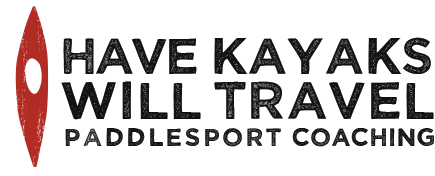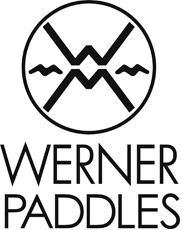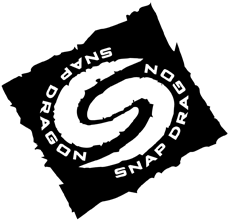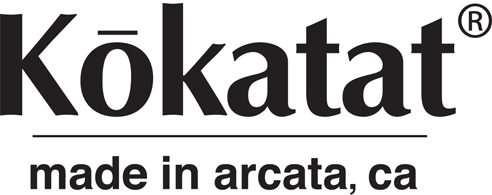We’ve got several courses on our 2016 schedule and more in the works. We’ve also decided to place more of our efforts on writing occasional articles in this space when we have something especially article-worthy to share, rather than frequent articles that strain our available time. So here’s what’s on tap now. If you are seeking a course we aren’t offering here or on our calendar, contact us and we’ll see what we can do. Door County Kayak Trip Skills: May 5-8 This course is for paddlers who have enough skill to handle their boats in a variety of conditions and are interested in learning how to prepare for and execute a multi-day, self-supported trip. We will cover choosing, packing and loading your gear, managing a loaded boat on land and on water, meal planning and preparation, and leave-no-trace practices. The water portion will also cover simple navigation, route selection and how to handle common problems that can arise with our gear, our group and the weather. $550. Includes coaching, campsite fees, and all meals Friday morning through Sunday morning. Rhode Island Ocean Skills Week: May 29 – June 3 Join us and the phenomenal coaches of The Power of Water – Trey Rouse and Scott Fairty – for five days focused on paddling in tides, current and rock gardens; navigating open-water crossings, and more. Get some top-notch coaching in a dynamic and scenic ocean environment, where you can develop skills while having fun and enjoying Rhode Island’s craggy, scenic shoreline. Coaching $750. Coaching, lodging and meals $1,200. Tide Races and Dynamic Paddling at Orient Point: June 5-6 We’re teaming up with Bill Lozano of Atlantic Kayak Tours, one of our favorite east-coast coaches, for two days of exciting paddling at the tip of Long Island, where strong currents create exciting tidal races and opportunities for complex navigation and crossings. (This is the perfect add-on for Rhode Island participants, too.) Coaching $300. Contact us soon at kayak.bp@gmail.com or 708.628.HKWT for more information or to...
What paddlers can learn from The Martian
We recently watched The Martian, Ridley Scott’s sci-fi film based on the novel by Andy Weir. There is absolutely no kayaking in this movie; there’s barely any water, except for the stuff the main character, Mark Watney, makes out of Hydrazine. The film is loaded with problem-solving (as usual XKCD said it best). It culminates in a terrific rescue scene, in which Mark has managed to blast off Mars and is drifting in space a little too far away from the Hermes, which is supposed to rendezvous with his vessel. Things aren’t going according to plan, and the commander has to figure out how to make the rescue successful in the conditions she has, not the ones NASA had planned. Her process is SAFE: Stop, Assess, Formulate, Execute, then repeat until it works. Or as Watney says at the end of the film, “You solve one problem and you solve the next one, and then the next. And If you solve enough problems, you get to come home.” What does this have to do with kayaking? Well, how many times have you seen someone rush in on a rescue before figuring out what’s going on and how to approach it? That’s what SAFE is supposed to mitigate. And how many times have you seen someone practice (or even teach) a rescue on flat water that simply won’t work in conditions, setting people up to fail when a rescue is truly needed? By contrast, when the commander realizes that the rendezvous is not going to go as planned, she stops, assesses the situation (with the help of the crew’s calculations), reformulates the plan and executes it. And even then, she has to reassess and reformulate on the fly. In addition, Watney is an active participant in his rescue. He’s not a “victim” waiting for others to solve the problem. He’s working with them as a team. Lots there to think about....
Two trips that make us thankful this season
Winter doesn’t signify the end of our paddling season. As long as nearby water is in liquid form, we can still get out in our kayaks and canoes. But what a treat it is to paddle whitewater in the Fall when rivers around here tend to be low, or to paddle warm water when Lake Michigan has dropped into the low 40s. We just returned from two trips that delivered these rewards. Teaming up with Scott Fairty and Trey Rouse of The Power of Water, Alec coached a Southern Rivers trip in the area around Bryson City, NC; and both of us coached a Tybee Island Ocean Skills Week on the Georgia coast. Three things we love about trips like these: Intensity: Extended courses like these allow us to work with students in a concentrated fashion, creating progressions from session to session and day to day in response to what they need and how they progress. Community: Bonds develop when you live, eat and paddle together over time. They form between students, who’ve gone on to become padding partners and to support one another on future journeys, and they form between coaches and students, who learn far more about one another than they would during a shorter course. Heck, they even form between coaches, though the four of us chose to work together on these courses because we already enjoyed time on and off the water together. Drive-to-paddle ratio: One of our mantras is that drive time should not exceed water time. At home, it takes us less than half an hour to get to Lake Michigan, so it’s easy to stay within that limit. For this trip, four days on the water feels like a minimum to justify the time in the car, and rewards us for those miles traveled. ...
Photo Friday: Wonderful waves
A Paddling Thought One boat among many Of different colors and sizes On ever changing water One paddler among many Of different backgrounds On the same water One person among 7.3 billion Of 65% water On earth 71% water Like kayaking, life Should be safe and enjoyable For all participants –Mark...
Autumn Gales lived up to its name
We just returned from the Autumn Gales in Stonington Borough, CT, the ocean sibling of our own Great Lakes Gales rough-water symposium. Run by Greg Paquin and Paula Riegel of Kayak Waveology, the pre-symposium events included a BCU four-star training and assessment, a BCU five-star training, and an ACA Level 5 ICE. The main event was three days of rough-water courses designed to take advantage of the conditions each day. Some days that meant paddling tidal races and navigating short crossings in current; other days that meant surfing or dialing in rough-water rescues. But while there were plenty of challenges for intermediate and advanced paddlers, there were also ample opportunities to learn or refine fundamentals, such as boat control in wind and current, or launching and landing in waves. And, of course, there was attention to weather, navigation, tidal planning and other ocean paddling essentials. A full contingent of high-level Welsh coaches were on hand: Nigel Dennis and Eila Wilkinson of Sea Kayaking UK, Phil Clegg of Sea Kayaking Anglesey, and freelance coach Pete Jones, along with Kierron Tastagh of Adventurous Experiences on the Isle of Man, Dale Williams of Sea Kayaking USA, Greg and Paula, a substantial contingent of local coaches and five-star leaders, and us. Approximately 40 students attended the event, which was well documented by kayak, power boat and drone by professional photographers, including Archee Jan Bloch and Dave Grainger. That explains the gorgeous videos from this event in past years. Like our Gales, this symposium doesn’t promise courses in advance. Rather, it offers a list of possible courses that might be offered, and then finalizes them each morning based on the conditions that day. Also like our Gales, all classes are a full day, which allows maximum flexibility to conduct each course according to participants’ interests and needs without the pressure of needing to return to switch courses or coaches. In an environment like this, that just makes sense. The location was pretty much ideal: Headquarters was at the New England Science & Sailing center in the quaint town of Stonington Borough. It was a short, warm-up paddle to get outside the break wall and into Long Island Sound, where currents and shoals create races and other features, and where we could cross to Fishers Island. The weather cooperated, too, providing wind on two of the three days, as the event’s name suggests. But even without wind, this location has enough currents and features for challenges and fun. We value geographical “cross-pollination” of coaching, and favor collaboration over competition. For us, this event was an example of both. We hope to be back next year, and bring some of our Great Lakes students with us....
Yes, you can buy Have Kayaks, Will Travel swag!
We’re excited to announce the grand opening of our Cafe Press store! We’ve got eco-friendly t-shirts (100% organic cotton), mugs, totes, stainless steel water bottles and miscellaneous other items, all featuring our logo by brilliant designer Flo Kat. Cafe Press offers a 30-day money-back guarantee on all purchases. Most items ship within 24 hours. Looking for a baby gift for a future paddler? Or a thermos for an old one? We’ve got you...
Photo Friday: Autumn colors
Fall Call Heard summer fall and autumn call as I walked leaves did talk from the trees having a say in their way rustling with ease restless to please wrestling not to leave wanting me to hear we share much in common here — Mark...
Video: Surf warm-up in the harbor
FAQ and reflections on our ACA Level 5 assessment
A couple of weeks ago, we successfully completed our American Canoe Association (ACA) Level 5 Advanced Open Water sea kayak instructor certification. The Instructor Certification Exam (ICE) was conducted by Instructor Trainer (IT) Sam Crowley of Sea Kayak Specialists in Marquette, MI. If you’re still with us after all those acronyms, here are some frequently asked questions (FAQs) and their answers, along with a few other reflections on the experience. Why did you want to become Level 5 instructors? We have been paddling and training in conditions above Level 4 for a number of years and wanted to get our ACA instructor certifications in line with that. This doesn’t mean we wanted to get into crazy conditions, but in a tidal environment with just a little but of current, it is easy to be above the Level 4 certification. An ACA Level 5 would allow us to be within our remit while coaching students in tidal environments, as well as in rough seas on the Great Lakes. Also, we’ve both been ACA Level 4 instructors for many years, and in addition to coaching, we’ve done substantial additional coach training in the British Canoeing system. A Level 5 assessment was an opportunity for an evaluation of our personal paddling and coaching skills with the ACA. What is the Level 5 remit (meaning the limits for coaching within the certification)? 3 to 5-foot seas 15 to 25 knot winds 3 to 4-foot surf break 4 to 5 knots of current Wait, didn’t you say you did this on the Great Lakes? Where did you find current? You can run a Level 5 ICE in the Great Lakes. It does require that the participants have experience with tidal conditions and can demonstrate their knowledge and abilities. To this end, we did part of the ICE on the Menominee River to demonstrate personal paddling skills as well as our ability to coach and create meaningful activities in current. We also had presentations and exercises that involved tidal planning and navigation. Sam was aware that we have considerable paddling and coaching experience on the ocean, so between observing us on this high-flow river and testing our understanding of tides and navigation, he was able to evaluate our skill and knowledge. Was it challenging? Yes, but appropriately so. The wonderful thing about paddling in demanding conditions is that nobody needs to create scenarios; the environment provides those possibilities. So we spent two days paddling, leading sessions, performing rescues and towing in wind and dynamic water, and another day coaching real students in those conditions. It just felt like normal rough-water paddling and coaching, but with an IT watching everything we did. There were a few other pieces, too: classroom and beach sessions tested our...
Photo Friday: Evening rescue session
Water, people, boats Images ethereal Captivating sight –Mark...







